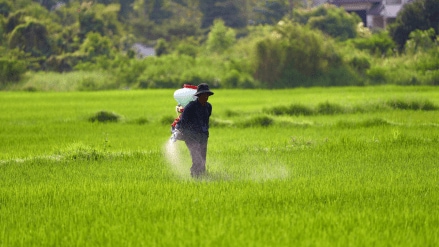As the final phase of talks for a interim trade deal with the US is under way in Washington, official sources here said that the Union ministries of agriculture, animal husbandry and fisheries said that they had taken “firm positions” against offering any import duty cuts to the US for key farm products.
Tariff cuts for maize, soybean, skimmed milk powder (SMP) and poultry products were demanded by the US under the proposed trade deal.
Currently, imports of maize is subject to 61% duty, while SMP attracts 68% levy. Lowering the duties on these items would hit the small and marginal farmers, the respective administrative ministries have conveyed to the Indian negotiators.
According to sources, removing the 30% customs duty on US shrimp by India wouldn’t have much impact on local producers. Seafood exporters maintain that the duty could prompt the US to impose similar tariffs on Indian shrimp exports.
While the US is seeking access for its genetically modified (GM) products especially soybean and maize, agriculture minister Shivraj Singh Chouhan has conveyed its reluctance to allow these transgenic crops citing several concerns about safety issues.
New Delhi hasn’t granted approval for the commercial cultivation of any GM crops since the nod to the commercial cultivation of BT cotton in 2002. Commercial cultivation of GM food crops continues to be banned in India.
However in 2021, India had allowed the import of 1.2 million tonnes (MT) of GM soymeal for chicken feed on an exceptional basis due to high domestic feed prices.
Officials said that imports from the US under lower tariffs would hit domestic soybean and maize and dairy farmers given the huge difference in cost of the production in India compared to the United States.
Currently around 6 million farmers grow soybeans where the government has announced a minimum support price of Rs 5328/tonne ($ 620/tonne) against cost of oilseed variety from US origin at present is around around Rs 35,000 tonne ($ 390/tonne), industry source said.
“Similarly in case of maize, the farmers are getting prices above the MSP as there is rising demand from animal feed, ethanol and human consumption which is expected to make domestic production un-remunerative if we allow cheaper import,” an official said.
R S Sodhi, president, Indian Dairy Association, said that the dairy sector, which is the largest contributor to agri-GDP and provides livelihood options to engage over 80 million farmers, has been functioning ‘quite efficiently’ since the 1970s.
India, the biggest milk producer in the world since 1998, plans to protect the industry through continuance with tariff and non-tariff barriers,sources said.
Sources said that India has not provided any tariff rate quota (TRQ) for the import of milk and its products since 2014-15, while the country had last imported India last imported dairy products in 2011.
Last year, the government had allowed imports of 0.5 MT of corn at a concessional 15% duties which was aimed at boosting domestic supplies.
Trade sources said easing chicken legs imports from the US (100% duty at present) would be tough for millions of Indian poultry farmers.
According to industry sources, removing the 30% customs duty on US shrimp by India wouldn’t have much impact on local producers. Seafood exporters maintain that the duty could prompt the US to impose similar tariffs on Indian shrimp exports.
Bulk of the country’s seafood exports to the US is ‘Vannamei Shrimp’, and in FY24, over 41% of India’s $ 7.38 billion shrimp exports went to America, which was by far its largest market.
Officials said there is a limited scope to provide market access for US in ethanol, almonds, apples, raisins, avocados, olive oil, spirits and wines.
